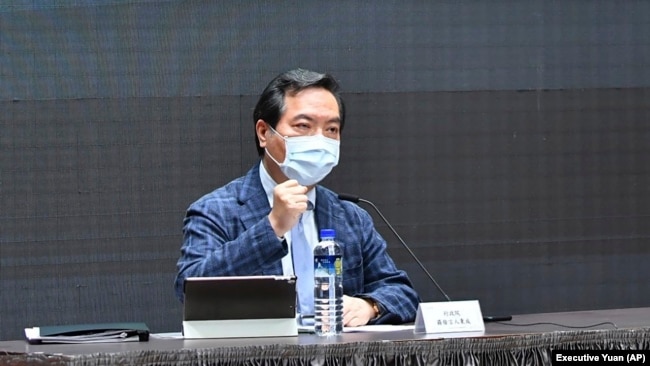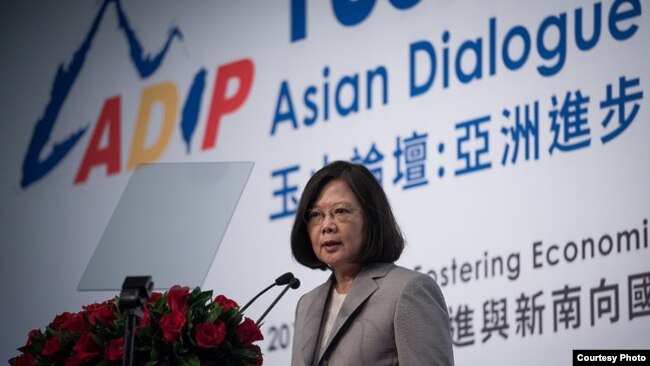軍事活動を活発化させることは、戦争を起こすことに繋がりと思うのですが。
幾ばくの違いがあるのでしょうか?
台湾の知人は、恐怖を感じると言っていました。
今回もVOAで英語を 学びましょう!!
ウクライナとは違うという台湾の認識(和訳)
Taiwan Sees Itself as Different from Ukraine
February 28, 2022
ロシアのウクライナへの攻撃は、より大きな隣国からの侵略に直面する可能性のあるもう一つの場所、台湾に注目させています。
一部の政治専門家は、ロシアのウクライナに対する動きを、中国が自主統治する台湾を支配下に置こうとする脅威と比較しています。
ウクライナと同様、台湾も民主主義国家であり、より強力な政府に抵抗してきました。しかし、島の多くの人々は、その違いが重要だと感じています。彼らにとって、ウクライナの戦争は、そして一般的な戦争は、遠い存在に感じています。
イーサン・リンさんは40歳、サービス業に従事しています。「政治的な面でも、人脈の面でも、私たちの状況はウクライナとあまり似ていないと思います。中国はいくつかの分野で台湾と多くの交流があるので、それほど危険だとは思いません。」と彼は語っています。
台湾は、中国東部沿岸から約160km離れた人口2,300万人の島で、台湾政府である中華民国が統治しています。中華人民共和国は、この島を自国の政治体制の一部にすべきだと主張しています。2016年にTsai Ing-wen英文が台湾の総統に就任して以来、この問題はより激しくなっています。ここ数カ月、中国は近海に艦船を送り込み、台湾が主張する空域に戦闘機を飛ばすなど、島への軍事的圧力を強めています。
中国による軍事演習
先週、中国軍は東シナ海で軍事上陸演習を行ったと報告しました。
台湾にとって重要なのは、中国が侵略してきた場合、米国が介入するかどうかです。ジョー・バイデン米大統領は、アメリカはウクライナ防衛のために軍隊を派遣しないと発言しています。アメリカは現在、台湾と正式な外交関係を結んでいませんが、過去には結んだことがあります。米国は1979年に台湾との正式な国交を断絶し、中国本土を承認しました。
昨年8月、米国は台湾への7億5千万ドルの武器売却を承認しました。米国は、台湾が自国を守れるようにするために、自国の法律にも縛られています。
Kao-Cheng Wang氏は、台湾のTamkang大学の教授です。彼は、「台湾の経済と技術は米国にとって重要であり、おそらく米国は台湾をより評価するだろうが、我々は紛争がどのように展開するかを見なければならない。」と述べました。
平和的統一
台湾は金曜日、ロシアに対する国際的な制限に参加すると発表しました。蔡氏が率いる民進党のWang Ting-yu議員はソーシャルメディアに、「大国が小さな隣人をいじめているのに、我々は傍観しているわけにはいかない」と書き込みました。
中国のXi Jinping習近平国家主席は、中国と台湾の”平和的統一”が双方の利益になると発言しています。
しかし、中国は統一に至るために必要であれば武力行使も辞さないとしています。現時点では、軍事行動の可能性は低いと思われます。、Li Minjiang氏は。シンガポールの南洋工科大学の中国国際関係専門家です。彼は、ロシアの侵攻のような外部の出来事が中国の行動に影響を与えることはないだろうと述べています。また、中国は今後も情報キャンペーンや平和的な方法で台湾の世論に影響を与えるだろうとも述べています。
タムカン大学教授のWang氏は、ロシアのVladimir Putinチン大統領はXi 氏とは違うと言います、なぜなら以前、他国である隣国のジョージアやウクライナに対して、武力を行使したことがあるからです。「Xi Jinping 習近平はどちらかといえば強い方ですが、戦争を起こすのではなく、軍事活動を活発化させた」とWang氏は付け加えました。
Peter Chiang氏は台湾の首都台北で販売員をしています。彼は中国が攻撃することを疑っています。「私が思うに、内部的にも、中国は今はそれほど安定していないのではないか」と彼は言います。
政府は恐怖の創造を批判
台湾のLo Ping-cheng内閣報道官は月曜日の声明で、人々は台湾とウクライナを比較して恐怖を作り出してはいけないと述べました。彼はこう言います:「すべての分野において、両者を比較することはできません。」さらに彼は、この機会に”今日のウクライナ、明日の台湾”を語る人々は、”ウクライナの状況と台湾の状況を誤って結びつけ、人々のモラルを乱していて、これは好ましくないことだ”とも述べました。
Taiwan Sees Itself as Different from Ukraine
The Russian attack on Ukraine has brought attention to another place that could face aggression from a much larger neighbor — Taiwan.
Some political experts are comparing Russia’s moves against Ukraine to China's threats to take control of self-ruled Taiwan.
Like Ukraine, Taiwan is a democracy that has resisted a more powerful government. However, many on the island feel the differences are important. For them, the war in Ukraine, and war in general, feel far away.
Ethan Lin is a 40-year-old who works in the service industry. He said, "I think our situation is not very similar to Ukraine's, whether it's political or in terms of connections. China has many exchanges with Taiwan in several areas, so I don't think it's that dangerous."
Taiwan’s government, the Republic of China, governs the island of 23 million people about 160 kilometers off China's eastern coast. The People’s Republic of China claims the island should become part of its political system. The issue has grown more intense since Tsai Ing-wen became president of Taiwan in 2016. In recent months, China has increased military pressure on the island by sending ships into nearby waters and flying fighter jets in airspace claimed by Taiwan.
Military exercises by China
Last week, the Chinese army reported it had carried out military landing exercises in the East China Sea.
The important question for Taiwan is whether the United States would intervene if China invaded. U.S. President Joe Biden has said America will not send troops to defend Ukraine. The U.S. has no current official diplomatic ties with Taiwan but did in the past. The U.S. cut formal diplomatic relations with Taiwan in 1979 to recognize mainland China.
Last August, the U.S. approved the sale of $750 million dollars in weapons to Taiwan. The U.S. is also bound by its own law to make sure that Taiwan can defend itself.
Kao-Cheng Wang is a professor at Tamkang University in Taiwan. He said, "Taiwan's economy and technology is important to the U.S., and perhaps the U.S. will value Taiwan more, but we have to see how the conflict plays out.”
Peaceful reunification
Taiwan announced Friday it would join international restrictions against Russia. Wang Ting-yu, a lawmaker from Tsai's ruling Democratic Progressive Party, wrote on social media, "We can't sit on the sidelines while a big power bullies a small neighbor."
China's President Xi Jinping has said that "peaceful reunification" of China and Taiwan is in the best interests of both sides.
However, China has said it would use force if necessary to reach reunification. At present, military action seems unlikely. Li Minjiang is a Chinese international relations expert at Singapore's Nanyang Technological University. He said outside events like the Russian invasion would not influence China’s actions. He added that China would continue to use information campaigns and peaceful ways to influence public opinion on Taiwan.
Wang, the Tamkang University professor, said that Russian President Vladimir Putin is different from Xi because he has used force against other countries before, against neighboring Georgia and Ukraine. "Xi Jinping is rather strong, but he increased military activity, rather than starting a war," Wang added.
Peter Chiang is a salesperson in Taiwan’s capital city, Taipei. He doubted China would attack. "I think even internally, they aren't that stable right now," he said.
Government criticizes creation of fear
Taiwan’s cabinet spokesperson Lo Ping-cheng said in a statement on Monday that people should not create fears by comparing Taiwan and Ukraine. He said: "In all areas, the two cannot be compared." Lo added that those who took this chance to talk about "'today's Ukraine, tomorrow's Taiwan'” were wrongly linking “Ukraine's situation with Taiwan's, disturbing people's morale. This is inadvisable."
Taiwan has a natural barrier of the Taiwan Strait separating it from China. It also is an important producer of semiconductors, or computer chips, that are used in smartphones, cars and many electronic devices.
Matsu is a group of Taiwanese islands that stretch to within 10 kilometers of mainland China. A Taiwanese politician there, Wen Lii, is concerned about a possible invasion. But he rejected simple comparisons to Ukraine.
Wen is director of the Matsu office of the Democratic Progressive Party. He wrote in an email, "People in Matsu always remain alert, but discussions about Chinese threats are usually based on concrete observation instead of a foreign crisis," he said. He added that there is no military buildup for now.
Words in This Story
bully – v. a person who does or says things to hurt or frighten others
internally –adv. existing inside something; taking place inside a group and not in public
stable – adj. not likely to change or come to an end suddenly
concrete – adj. definite and specific
disturb –v. to worry or upset
morale – n. the amount of confidence and cheerfulness that a group of people have

